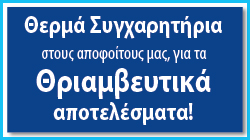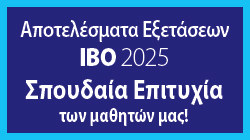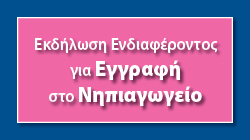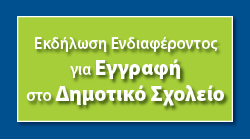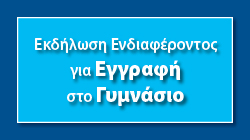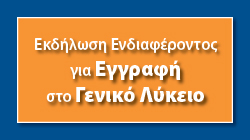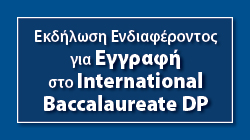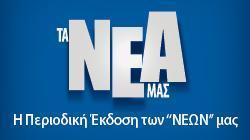Group 3: Individuals and Societies
• Business Management HL/SL
• History HL/SL
• Psychology HL/SL
• Environmental Systems and Societies SL*
*The course Environmental Systems and Societies may count either as a Group 3 or as a Group 4 subject.
Business Management
Course description:
The aim of the course is to impart on students a holistic understanding of the role of business in the world today, and help them master the necessary tools, concepts & frameworks that will allow them to address complex business issues and make strategic decisions for action. Cultivating personal judgment and creative thinking in students is one of the ultimate goals of the course. It is important that the students learn to go beyond formulas and concepts, and learn to integrate the knowledge acquired from the different topics, in order to form their own judgment and strengthen their unique way of thinking.
The course will be structured around fiveTopics (described below in the Syllabus section), which represent all the different and complementary aspects that make up and enable business activity. Using the textbook as a starting point, the course integrates selected readings from books and current affairs articles from business press. Special focus is given to the discussion and analysis of case studies, as a way to highlight real-life business issues and build solid analysis and decision-making abilities.
The Business Management course is well suited for students wishing to pursue further studies in Business, and in particular in marketing, management, HR, finance, or accounting.
Business Management and prior learning
The course syllabus is developed assuming no prior knowledge of Business Management. As such, there are no prerequisites for this course.
Assessment
The course is designed to prepare the students to successfully go through a 2 level assessment process:
External Assessment, comprising of 2 written papers (case-based exams) worth 75% in total.
Internal Assessment, comprising of a Written Commentary (SL), or Research Project (HL), worth 25% of the final grade
Business Management Syllabus
The syllabus consists of 5 topics that are covered in the 2-year period for both SL and HL.
Business Organization & Environment
Human Resources
Marketing
Accounts & Finance
Operations Management
Psychology
Content:
Psychology can be defined as the systematic study of human behaviour and experience. The IB Psychology course is addressed to students of diverse academic interests as it stands between the human and the natural sciences. This heterogeneity makes the course challenging and students are exposed from early on and learn to respect alternative viewpoints. They realize that the investigation of human behaviour is not a straightforward task with definite answers, fostering tolerance of ambiguity and uncertainty.
The primary aim of the course is to enable students to synthesize. This will be accomplished through the in depth investigation of the biological, cognitive and sociocultural nature of behaviour. Several topics will be addressed including the nature of intelligence, criminal behaviour, the formation of stereotypes, and approaches to therapy. The advantages and limitations of scientific methodology will be tackled, giving students the skills to evaluate research. Furthermore, the ethical concerns relating research with humans and humans will be extensively studied.
For those students taking Psychology Higher Level, the options are an opportunity to compare and evaluate different psychological explanations of more specialized areas, such as abnormal, developmental, and sport psychology.
Assessment:
From early on in the course, students will be rigorously trained to meet the IBO assessment criteria and at the same time cultivate skills essential for a lifetime. This will be accomplished gradually through weekly homework and practice tests, exercising their knowledge and building their time-keeping skills. Students will be taught to respond to Short Answer Questions (Section A of Paper 1 and Paper 3) and Long Essay Questions (Section B of Paper 1 and Paper 2).
As far as the internal assessment is concerned, students will be encouraged to approach it as a chance to pursue their personal interests and get graded on it. The criteria will be provided to them, so that they can improve themselves where needed.
History
History is a subject which obviously develops a student's knowledge of the events of the past, but also their analytical skills and ability to present balanced, reasoned arguments. In many ways the study of history has been compared to the profession of law. Like the historian, the lawyer or judge looks for and gathers pieces of information which are then used in the construction of convincing arguments.
More specifically, and for the purposes of the History IB Programme at Ionios School, students involve themselves in an in-depth study of "Route Two", that is, the following areas:
a) Internationals relations, 1918-38;
b) single-party states and dictatorships, namely, Mussolini's Italy, Hitler's Germany, Stalin's USSR and Mao's China;
c) Causes, practices and effects of the first and second world wars;
d) the interwar period and diplomacy (with attention on the League of Nations); and
e) the Cold War.
20th century world history—prescribed subjects (one to be studied)
1. Peacemaking, peacekeeping—international relations 1918–36
2. The Arab–Israeli conflict 1945–79
3. Communism in crisis 1976–89
SL and HL
20th century world history - topics (two to be studied)
1. Causes, practices and effects of wars
2. Democratic states - challenges and responses
3. Origins and development of authoritarian and single-party states
4. Nationalist and independence movements in Africa and Asia and post-1945 Central and Eastern European states
5. The Cold War
SL and HL
Higher Level options (one to be studied)
1. Aspects of the history of Africa
2. Aspects of the history of the Americas
3. Aspects of the history of Asia and Oceania
4. Aspects of the history of Europe and the Middle East
HL only
All students, both standard and higher level, are obliged to write an Internal Assessment on a subject chosen by themselves and approved by the instructor.




